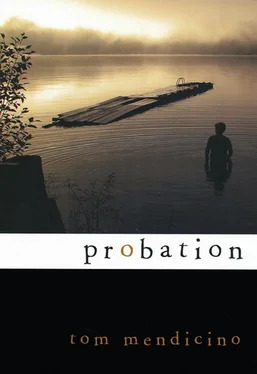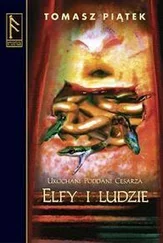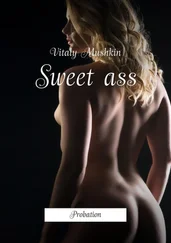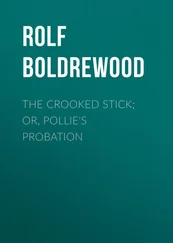What kind of question is that?
I don’t hate her. How could I hate my little sister? My buddy, my pal, the one person on earth who knows things about me that would still smart and sting if she were to fling them in my face. Which, remarkably, she hasn’t, despite numerous provocations, still protecting me, God knows why, never mocking me, knowing how deep a wound she would inflict just by reminding me…
…that I would creep down the hallway and crawl into her bed after another bloody nightmare roused me from a deep sleep.
…that I kept silent, allowing her to take the blame for the ruined lipstick, knowing the consequences would be far more severe if it were ever discovered it had been me that smeared it across my mouth.
…that I would talk Randall Jarvis into pulling down his pants and letting Gina and me touch his thing whenever we played General Hospital.
… that the real reason Billy Cunningham split my lip was because I tried to kiss him on the mouth.
How could I hate the woman who once was such a tough little kid, who spat when my mouth was dry from fear, punching and swinging when I was unable to make a fist, screaming and cursing when I choked on the words. Don’t cry, Andy, she would console me as she prepared for battle, grabbing a brick, a bat, a board, her arms flailing, threatening to draw blood from the Billy Cunninghams and Richard Tricketts, never backing down when they taunted her with names like Fatty, Blimpie, Whale Girl.
Fuck you, she shouted at our tormentors. Fuck you, assholes.
No one, she insisted as our mother pinched her mouth with her thumb and forefinger, threatening to insert a bar of Fels-Naptha laundry soap if she didn’t confess who taught her such terrible, terrible words. Brave little Gina, always standing up for the men in her life, her foul-mouthed daddy and me.
Of course I don’t hate you, baby sister. If I did, I’d free you to tell the world all my dirty little secrets.
She finally gets around to offering me a glass of wine, which I decline, getting a beer instead. I let her question drift away, refusing to answer. I go out on the porch for a smoke, leaving her to her cabinets. But she follows me, using the excuse she’d like a cigarette too. I remind her she quit (not to preserve her pulmonary functions but to halt the erosion of the fine skin around her face and eyes).
“Why do you have to be such a prick?” she asks. “What have I ever done to you?”
She thinks she deserves an explanation why I refuse to acknowledge the bond that existed between us before I erected a barrier more permanent than the Berlin Wall. Truth is, I’m straining to think of some way to respond, a bone to throw her, some reason that justifies my slow intractable retreat over the decades. I could tell her I resent her for outgrowing me.
Do you remember when no one was more fun or fascinating than me, your older brother, whose vivid imagination cast you as Robin to my Batman, Becky Thatcher to my Tom Sawyer, Joe to my Frank Hardy (and, yes, I’ll admit it to you but no one else, sometimes Ethel to my Lucy or Mary Ann to my Ginger)?
I could blame her for losing her baby fat and growing into a beauty, for making friends with the girls who’d taunted her when she was big and clumsy, not simply forgiving them, but sharing her secrets and confiding her dreams in them.
When did you realize you wanted a brother like their brothers instead of one who was interested in your crushes and jealousies and rivalries?
But both of those ring a bit a hollow. They’re excuses, neither of them completely true. Anyway, my impatient little sister would never understand concepts like erosion and accretion and evolution. She needs a moment, an instant that changed everything, a gunshot, an explosion, a confrontation, the Big Bang. She needs a wound we can lance so we can move on with the healing. Except I can’t think of any single cruel act she’s ever perpetrated that deserves such unrelenting hostility. Well, maybe one.
“You are such a faggot,” I say.
“What?” she asks, taken back, her suspicions confirmed. I have lost my mind.
“Not you. Me,” I say.
“What are you talking about?”
“You are such a faggot.”
“You aren’t making sense. Sometimes I think you’re crazy,” she says, her voice getting in pitch for the argument that’s beginning. This is the stuff she’s made for. In ten minutes, she wants us sobbing, collapsing in each other’s arms, competing in contriteness for all our past mistakes, pledging undying fealty.
I repeat the mantra again, frustrating any attempts at quick angry retorts. She needs to serve and volley. I keep hitting junk balls, soft lobs she can’t swing at.
“What’s your point? I have no idea what you’re talking about.”
“Yes, you do.”
“No. I do not.”
I search for a few facts for backdrop, but my recall betrays me, coming up short. All I can retrieve is a stray moment, isolated, stripped of context. I’m standing at the open refrigerator door, poking around loosely wrapped moldy cheese, disgusted, whining, probably squealing, and sounding like a bratty little girl.
You are such a faggot, my sister, behind me, says.
I hid my face in the ketchup bottles and milk containers until she walked away. Five little words that branded me, irrevocably. How old was she? Who knows? I can’t remember anything else about that day, not the month, not the year, not if it was summer or winter, not if it was dark or light. All that survives is that one blazing minute, seared into my memory, the act of betrayal, the sharp kick in the guts, completely unexpected, by my loyal ally, the girl who had always put her thick orthopedic saddle shoes to good use, bruising the shins of our enemies.
I should have pulled my head out of that refrigerator and punched or slapped her, taking a lesson from her book. One gesture to ensure she would never forget what she did to me that day. Some violent act to teach her the consequences of turning against me, abandoning me, leaving me with nothing left to rely on but the benevolent protection of my mother. But I let her walk away with her bowl of chocolate ice cream, and today she has no recollection of this life-changing event. It’s as lost to her as a single grain of sand tossed back on the beach, indistinguishable and irretrievable.
“I don’t know what you are talking about. I really don’t.”
“Yes, you do,” I repeat, halfhearted, unwilling to concede the insignificance of the remark.
“How old was I?” she asks.
“Old enough. I can’t remember. Ten. Eleven. Twelve. I don’t know. It doesn’t matter.”
“So you hate me because of some stupid remark I made twenty-five years ago. Do you think I even knew what the word meant at that age? Maybe you did. Remember, you were the smart one.”
She pours the last of the wine into her glass, drains it, and opens another bottle. I anticipate a head-on assault, a blistering attack, anything but unconditional surrender.
“I give up. You win. I don’t care anymore. How many times have I tried to reach out to you? For years, I blamed that wife of yours. Oh, sorry. I forgot. We’re not supposed to mention the perfect Alice. I guess I can tell you now I never liked her, hated the way you were when you were with her, the two of you in your own little world, laughing over some private joke you thought everyone else was too stupid to get. I suppose I should feel sorry for her now for putting up with you all those years. You’re a coldhearted bastard, you know that, don’t you?”
Yes, Gina, I know that.
I’ve got a hole where my heart used to be.
“You wouldn’t understand” is my feeble response. I could ask her how she would have felt if I had called her a fatty or teased her about peeing her pants. But I know that I did-many times-and she’s either forgotten or forgiven the careless cruelties of childhood.
Читать дальше












